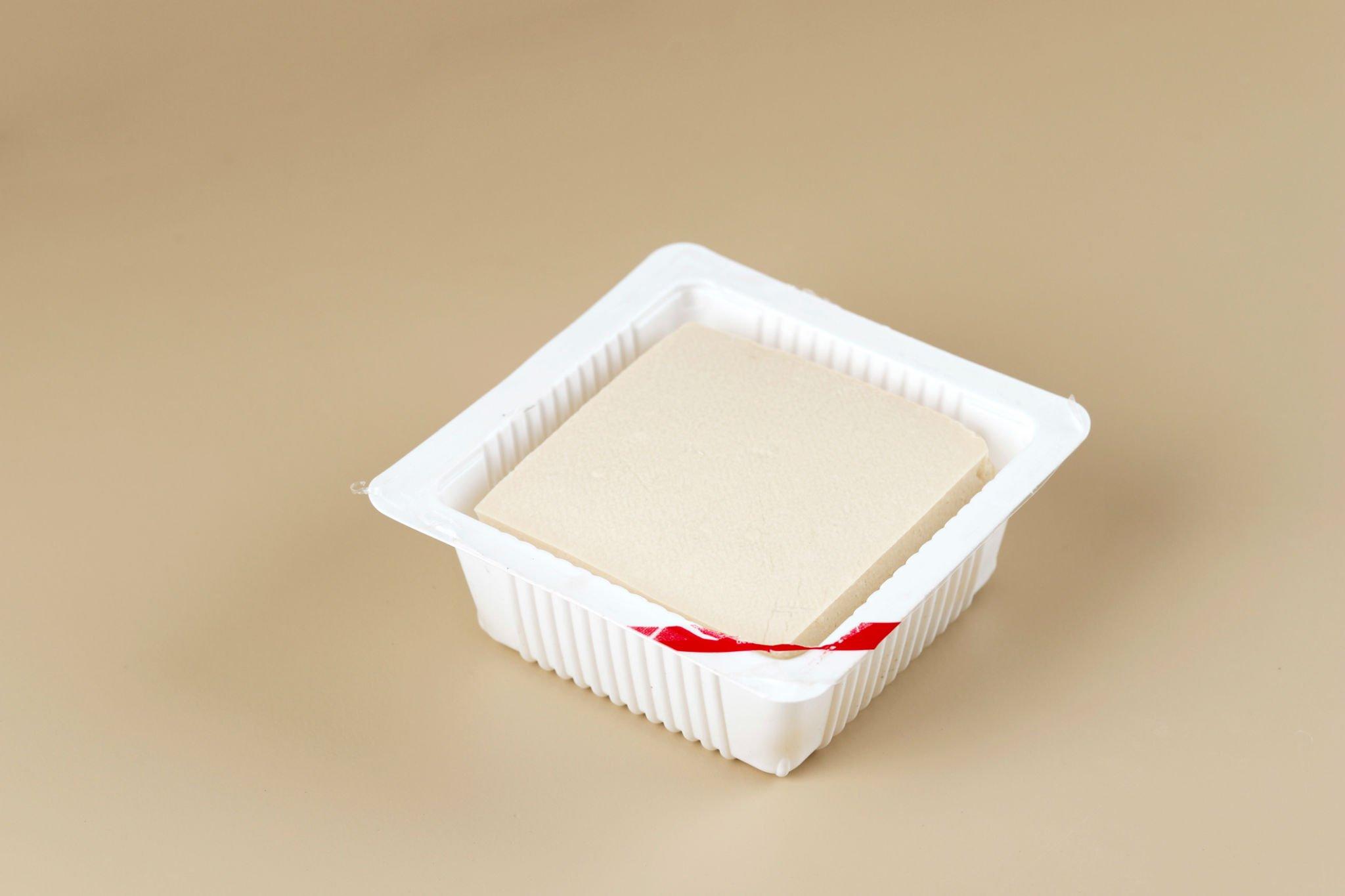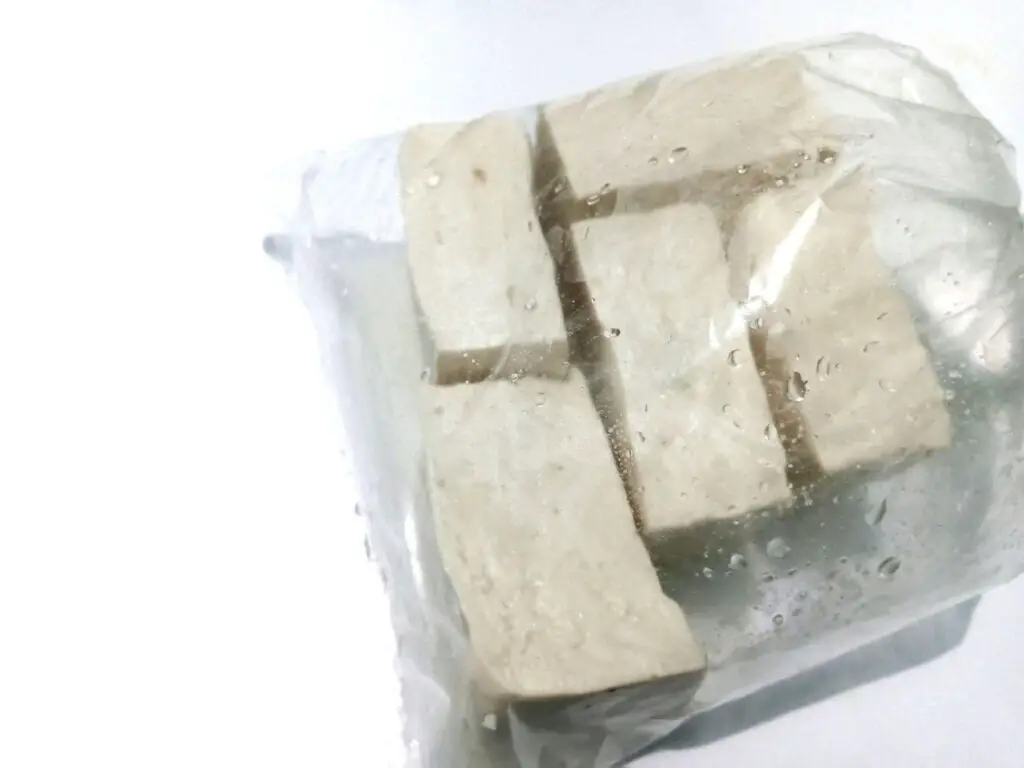What Happens If You Eat Expired Tofu? Still Safe to Consume?

Ever found yourself in a tofu dilemma, standing in your kitchen, debating the fate of that slightly questionable tofu block? I get it—I’ve been there. I’ve got the eternal struggle between the expiration date and the desire to use the remaining tofu.
So, let’s talk tofu: What Happens If You Eat Expired Tofu? Is it Still Safe to Consume?
Eating expired tofu can pose several risks to your health, including food poisoning, which can cause many discomfort symptoms. On the other hand, some people have reported doing so without issue.
Join me on a journey of soy-based exploration as we uncover the secrets beyond the label. We’ll navigate the texture changes, sniff out any off-putting odors, and decode the mystery of whether that tofu lurking in the back of your fridge is still a friend or has turned foe.
Spoiler alert: there’s a lot more to it than just the date stamped on the package. Get ready to embark on a tofu adventure where we separate fact from fiction, one soybean at a time.
What Is Tofu? Ingredients and Production Process
Tofu, a versatile soy-based protein, has become a staple in many diets worldwide. Crafted from soybeans, water, and a coagulant, tofu undergoes a unique production process that transforms it into a versatile culinary canvas.
The soybeans are soaked, ground, and boiled to extract the milk-like liquid. The coagulant is then added to curdle this liquid, separating the solids from the whey. The resulting curds are pressed into blocks, creating the familiar tofu we know and love.
Understanding Tofu Expiration and Shelf Life

Like any perishable item, tofu has a finite shelf life. It’s crucial to comprehend the factors influencing tofu’s expiration to make informed decisions about its consumption.
Tofu typically comes packaged with a labeled expiration date, but knowing how fresh tofu is goes beyond a simple date check.
Factors Affecting Tofu Expiration:
- Packaging: Tofu is often sealed in airtight containers or vacuum-sealed packages, extending its shelf life. Once opened, however, its exposure to air accelerates the expiration process.
- Storage Conditions: Tofu prefers a cold environment. Refrigeration significantly slows down the aging process, preserving its texture and flavor. Leaving it exposed to room temperature, on the other hand, can lead to spoilage.
- Water Content: Tofu’s moisture content makes it susceptible to bacterial growth. Excess water promotes an environment conducive to spoilage, so proper drainage is crucial.
What Happens If You Eat Expired Tofu?
Eating expired tofu isn’t like taking risks, but it’s wise to be aware of the potential consequences. While tofu doesn’t necessarily “go bad” like some dairy products, it can undergo changes that impact its texture, flavor, and safety for consumption.
Eating expired tofu can lead to food poisoning and other health issues. Symptoms of consuming bad tofu may include nausea, vomiting, diarrhea, stomach cramps, and even fever. It is important for you to be aware of the signs of spoilage in tofu, such as discoloration, mold, or a sour smell, and to discard it if any of these signs are present.
Some people may suggest that unopened, expired tofu may still be safe to consume if it has been stored correctly and does not show signs of spoilage. For me personally, I recommend erring on the side of caution and discarding expired tofu to avoid potential health risks.
Safety Precautions:
- Inspect the tofu: Check for signs of discoloration, mold, or damage. If the package is intact and there are no visible signs of spoilage, it may be safe to consume.
- Smell and taste test: Upon opening the package, smell the tofu. If it doesn’t smell funky or sour, it may be safe to eat. Taste a small piece to ensure it doesn’t taste sour or off.
- Cooking: Cooking tofu thoroughly can kill any potential harmful bacteria. Consider stir-frying, baking, or grilling to ensure its safety.
- Shelf life: Tofu is best when fresh, and its quality may decline over time. It’s always best to consume tofu within the recommended shelf life to ensure its safety and taste.
Safe Handling and Storage Practices of Tofu
Ensuring the longevity and safety of your tofu involves adopting proper handling and storage practices. Maximizing freshness not only enhances your culinary experience but also safeguards your health.
Storage Tips:
- Refrigeration: Store unopened tofu in the refrigerator at temperatures below 40°F (4°C). Once opened, transfer it to an airtight container filled with water and change the water daily to maintain freshness.
- Freezing: Tofu can be frozen for an extended shelf life. Cut it into cubes or slices, freeze on a tray, and then transfer to a freezer bag. Thawed tofu might have a different texture, so use it in dishes like soups or stews.
Handling Guidelines:
- Drain Excess Water: Before cooking, drain excess water from the tofu by wrapping it in a clean kitchen towel and pressing gently. This enhances its ability to absorb flavors during cooking.
- Marination: Marinating tofu infuses it with flavor. Allow it to soak up the marinade for at least 30 minutes, or overnight for a more intense taste.
- Seal Properly: When storing leftover tofu, ensure it’s sealed in an airtight container to prevent exposure to air and other odors in the fridge.
What are The Signs of Spoiled Tofu?
Like any perishable item, tofu has a limited shelf life. Understanding the signs of spoiled tofu is crucial for ensuring not only a delightful culinary experience but also your health.
Signs of Spoiled Tofu:
- Texture Changes: One of the most noticeable signs of spoiled tofu is a change in texture. If your tofu has become excessively slimy, mushy, or dry, it might be time to bid farewell.
- Off-Putting Odor: A fresh block of tofu should have a neutral, bean-like scent. If you catch a whiff of anything sour or unpleasant, your tofu might have gone south.
- Unusual Color: While tofu is typically off-white, any discoloration—especially shades of green, pink, or grey—indicates spoilage.
- Mold Growth: Obvious mold growth is a clear signal that your tofu is no longer safe for consumption. Mold can spread quickly, so it’s crucial to discard the entire block if you spot any.
How to Use Expired Tofu
Sometimes, despite our best efforts, we find ourselves with tofu that’s on the brink of expiration. While the ideal scenario is always to consume tofu while it’s fresh, there are creative ways to salvage or repurpose slightly expired tofu in your culinary endeavors.
Cooking Methods for Expired Tofu:
- Stir-Fry Redemption: Sautéing expired tofu in a hot pan with an array of fresh vegetables, like bok choy, green bean, brussel sprouts, can mask the changes in texture. The high heat cooking not only revitalizes the tofu but also infuses it with the flavors of the stir-fry.
- Baking Brilliance:Transform your expired tofu into crispy cubes by baking them. A spell in the oven can provide a delightful crunch, making it a tasty addition to salads or as a standalone snack.
- Grilling Greatness: Marinate the expired tofu and throw it on the grill. Grilling imparts a smoky flavor and adds a satisfying char, breathing new life into tofu that might be past its prime.
Related: How to Char Brussel Sprouts by Grilling
Tofu in Different Culinary Applications:
| Culinary Use | Description |
| Smoothies | Blend small, manageable pieces of expired tofu into your morning smoothie for a protein boost. |
| Soups and Stews | Cube and add to soups or stews where the change in texture won’t be as noticeable. |
| Sauces and Dips | Blend expired tofu into sauces or dips for a creamy consistency. |
| Baked Goods | Incorporate crumbled or blended tofu into baked goods for added moisture and nutrition. |
Conclusion
In conclusion, while the idea of consuming expired tofu may raise concerns, understanding the signs of spoilage and creative ways to repurpose it can alleviate worries. Texture changes, off-putting odors, unusual colors, and mold growth are all indicators that it’s time to let go of your tofu.
While it is generally not advisable to eat expired tofu, some people have reported doing so without issue. However, it’s essential to inspect the tofu, perform a smell and taste test, and cook it properly to minimize any potential risks.
However, before reaching for the trash bin, consider exploring different cooking methods and culinary applications to give your slightly past-its-prime tofu a new lease on life. Whether stir-fried, baked, grilled, or blended into various dishes, expired tofu can still contribute to delicious meals, minimizing waste and maximizing your culinary ingenuity.
Always trust your senses, experiment in the kitchen, and savor the possibilities even when faced with a seemingly expired ingredient.
FAQs on Safety of Eating Expired Tofu
Can you get sick from eating expired tofu?
While consuming slightly expired tofu may not cause severe illness, it can lead to digestive discomfort. Check for signs of spoilage, such as changes in texture, odor, or unusual color, and exercise caution.
Does cooking expired tofu make it safe to eat?
Cooking expired tofu can kill potential harmful bacteria, making it safer to consume. However, it won’t reverse changes in texture or flavor, so be mindful of these aspects during preparation.
Can tofu go bad before its labeled expiration date?
Yes, tofu can go bad before its labeled expiration date. Factors like storage conditions and packaging integrity can influence tofu’s freshness, so it’s essential to monitor its condition beyond the expiration date.
What are the consequences of consuming rancid soy products?
Consuming rancid soy products, like expired tofu, can lead to adverse health effects, including digestive issues. It’s crucial to be aware of the signs of rancidity, such as changes in texture and off-putting odors.
How does tofu shelf life vary based on storage methods?
Tofu’s shelf life is influenced by storage methods. Refrigeration extends freshness, while exposure to room temperature accelerates spoilage. Proper storage is vital to preserving tofu’s texture and flavor within its shelf life.






